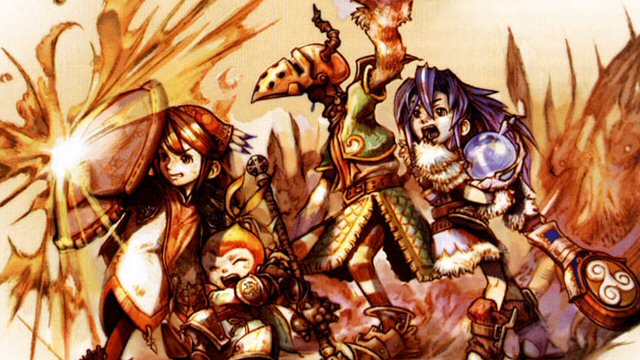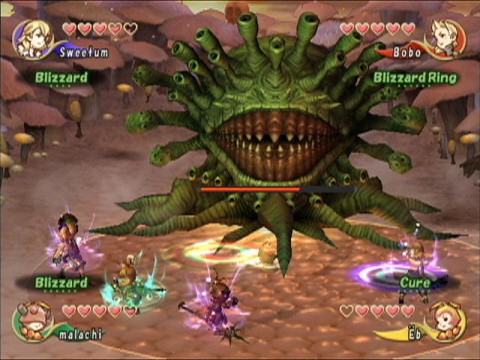
In my many years of gaming, I’ve grown to realize I venerate co-operative gaming. There’s something about performing a seemingly undefeatable task with another person and then relishing in the moment of victory together that gives me a profound sense of accomplishment often not achieved by a feat attained only by myself. Sharing a successful moment with a close friend, or even a stranger, strengthens or creates a bond that is purely beyond reach when existing in an environment unaccompanied. Forging this unique connection is the reason why sports have existed essentially since the dawn of humankind, and continues to demonstrate the power of team play.
Co-operative gaming has been present for a long time, though its prevalence rises and falls as the years go by with regards to gaming from a broad and mainstream perspective. While other companies have appealed strongly toward the competitive side of gamers, Nintendo has always found an unrivaled blend of co-operation and competition, though seems to emphasize playing together more so than playing in opposition. In fact, the Big N has been home to some of the largest co-operative gaming endeavors around, and has taken advantage of this inherent drive we all have to bind together and tackle challenging errands. But even though, Nintendo’s found success in this arena, the concept of co-operative gaming often feels shallow, despite the human mechanics at play behind the scenes. It’s an elusive yet impactful problem, so let’s take a look at the reason why co-operative gaming hasn’t found the success it deserves.
The initial reason why cooperative gaming can be detrimental to the overall experience is that developers too often forget that there needs to be a single player experience acting as the foundation long before the co-operative feature is added. There have been a handful of games on a Nintendo stamped console that have encountered this problem and were held back from their full potential because of it. The first game that immediately comes to mind when discussing this topic is the GameCube exclusive and Final Fantasy spin-off, Final Fantasy Crystal Chronicles.

Crystal Chronicles was the epitome of a co-operative experience, and focused on this aspect so much that even its primary control mechanic was centered on it. When linking up with buddies, players were required to use a Game Boy Advance as their controller. While this connectivity feature was an innovative and even fairly neat concept, it was impractical. Impractical because it either assumed gamers owned both a GameCube and GBA or would go out and purchase a GBA for the experience. That aside, when the game was up and running, and you and your friends were traversing Crystal Chronicles’ world together, it felt magical. It felt especially delightful because so many of the game’s nuances, puzzles, enemies, and boss battles were designed to work perfectly with multiple players.
The core issue, however, was that these tasks were designed for more than one person, and being forced to perform the same, or at least very similar tasks alone when you didn’t have your friends around made the game feel like a chore to play. Due to its design nature, it just wasn’t entirely enjoyable when you were by yourself. In fact, the reason why I never beat the game was because I could never get enough of my buddies over long enough for us to plow through the game’s 15 hour campaign. That’s a long time to force players to be together in order to realize the game’s full and true potential.
Pages: 1 2




 ShareThis
ShareThis







The last local multiplayer game I played where each member of a team played their role perfectly was Phantasy Star Online Episode 1 and 2 for Gamecube many years ago. There was no fighting one another. No one got in each other’s way. Healers healed, gunners stayed back and shot everything up with their amazing accuracy, and melee battlers got in close to deal heavy damage whenever they could.
It’s too bad that Monster Hunter doesn’t have a true offline multiplayer story mode…just arena mode, which isn’t all that great for long. Hopefully it’ll be added when they decide to make a new one for Wii U.
Ah, yes, PSO… One of my favorite Sega games, and my absolute favorite multiplyer title to date. That being said, even that experience can be broken if you mentioned healer decides they don’t want to heal, or can’t keep up the healing as quickly as you need it during that last fight with Falz. I think the point that I hoped to convey that human behavior is too inconsistent to ever make a game, where you are required to rely on another person to find success, truly competent.
That aside, did you know that PSO still has a rabid following thanks to private servers? There are still a ton of people playing, and playing all versions – Dreamcast, Gamecube, and PC. It’s remarkable how long a life that can has had. It just won’t die; and rightfully so. It’s such an important game in the MMO world.